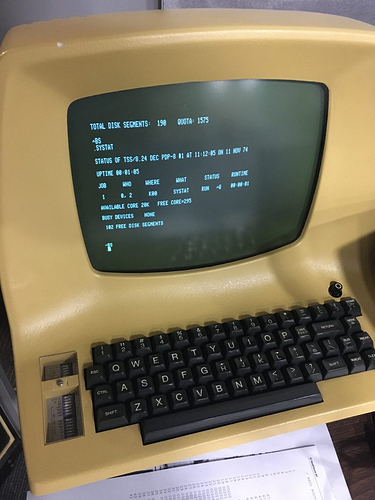(Interesting, but I’m struggling with a very US-centric text…)
Ah, relegated to a footnote:
For U.K. computers … the first operating systems appear in the beginning of the 1960s for the LEO III (1961) or Ferranti’s Atlas and ORION computers (1962).
See also GEORGE from the early 60s onwards:
And Strachey gets a say in the body text:
Strachey lamented that the computer was used inefficiently, considering the high speeds of the processor, and of the input and the output. Therefore, he proposed “the concept of timesharing between operators […] to allow […] manual programme checking at a special console”, and also to do maintenance. To handle the complex co-ordination, Strachey described some hardware devices such as interlocks and interrupts, and a “Director […] master programme designed to cater automatically for the conflicting demands of a number of stations of different types within a predetermined basic plan”
I expect the Ukrainian and Russian endeavours will have made inventions and discoveries too… maybe see here
I’ve always felt that the first operating system was Turing’s programming manual for the Manchester computer (completed 1950). Not initial orders, but a social order, including access restrictions based on tasks and users, a bureaucratic ring model.
This paper looks worth a look too:
P. Brinch Hansen, The evolution of operating systems (PDF)
(There are a few choice quotes here)
The author looks back on the first half century of operating systems and selects his favorite papers on classic operating systems. These papers span the entire history of the field from the batch processing systems of the 1950s to the distributed systems of the 1990s. Each paper describes an operating system that combines significant ideas in an elegant way. Most of them were written by the pioneers who had the visions and the drive to make them work. The author summarizes each paper and concludes that operating systems are based on a surprisingly small number of ideas of permanent interest.
Some light lecture notes: PDF
History of the OS
Two distinct phases of history
Phase 1: Computers are expensive
- Goal: Use computer’s time efficiently
- Maximize throughput (I.e., jobs per second)
- Maximize utilization (I.e., percentage busy)
Phase 2: Computers are inexpensive
- Goal: Use people’s time efficiently
- Minimize response time
Both of the above from (or from near) the site of the free book
Operating Systems: Three Easy Pieces (not a PDF)
TSS/8 for the PDP/8 came out around 1968. 12+K words (12 bits) could do alot.
Oddly enough I saw a post about TSS/8 recently, with a great title:
Time-sharing in 12KW: Running TSS/8 On Real PDP-8 Hardware
